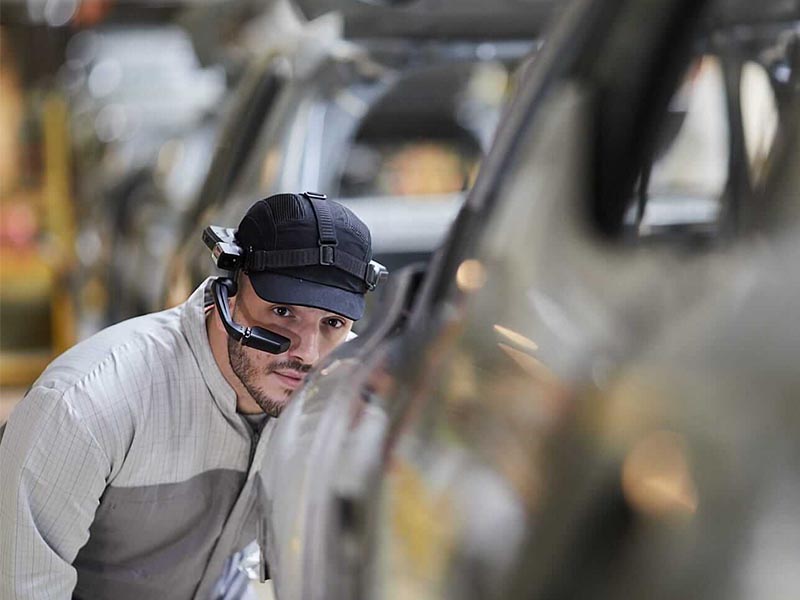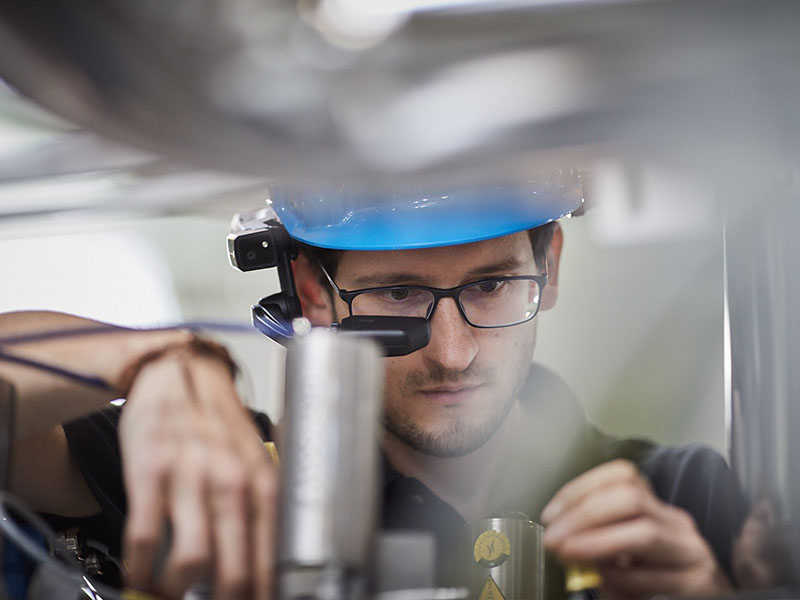Integrating cutting-edge digital technologies, such as augmented reality and assisted reality, is driving automation in the global manufacturing industry. Digital transformation in the manufacturing industry empowers frontline workers and enables businesses to address challenges, such as the safety of workers, knowledge gaps, and geographically-dispersed teams.



The manufacturing industry is currently battling a unique challenge – an ageing workforce. Research studies report that approximately 25 per cent of the industry’s workforce is 55 years or older. It means that nearly one-fourth of the entire workforce will retire in the upcoming ten years, leaving organisations with the loss of valuable knowledge and information.



Every working environment has its own dangers, but safety is the biggest concern in the manufacturing industry, specifically with workers around heavy machinery, hazardous chemicals and sharp objects. The risks of working elevate further when workers are forced to carry handheld devices in such sensitive environments. Therefore, there is an urgent need to prioritise workers’ protection and safety in the manufacturing environment.



While the pandemic halted global business operations, it made organisations realise the need to strengthen digital connectivity. Mobility restrictions delayed operations and pointed out the biggest gap in the industrial sector – ineffective communication between geographically-dispersed teams, remote experts and frontline workers. If the team fails to communicate in time, the delay could lead to significant losses for the company.



The manufacturing industry is currently battling a unique challenge – an ageing workforce. Research studies report that approximately 25 per cent of the industry’s workforce is 55 years or older. It means that nearly one-fourth of the entire workforce will retire in the upcoming ten years, leaving organisations with the loss of valuable knowledge and information.



Every working environment has its own dangers, but safety is the biggest concern in the manufacturing industry, specifically with workers around heavy machinery, hazardous chemicals and sharp objects. The risks of working elevate further when workers are forced to carry handheld devices in such sensitive environments. Therefore, there is an urgent need to prioritise workers’ protection and safety in the manufacturing environment.



While the pandemic halted global business operations, it made organisations realise the need to strengthen digital connectivity. Mobility restrictions delayed operations and pointed out the biggest gap in the industrial sector – ineffective communication between geographically-dispersed teams, remote experts and frontline workers. If the team fails to communicate in time, the delay could lead to significant losses for the company.


Augmented reality in the manufacturing industry is streamlining communication between remote experts and frontline teams. AR industrial head-worn devices allow frontline workers to collaborate with remote experts in real-time using video applications. Via video collaboration, organisations can increase digital connectivity, reduce travel costs and handle equipment downtime. AR-driven digital transformation in the manufacturing industry enables experts to train, pinpoint exact issues and perform audits without any need to travel and mark their physical presence.




7/84-90 Lakewood Blvd, Braeside,
Victoria, 3195
Australia
Tower 5, Level 17, 5 Temasek Blvd,
Suntec City,
Singapore
hello@realtimear.com
+61 477 220 887
Just let us know a bit about yourself and leave the rest to our experienced consultants. We have assisted 100+ organisations in Australia and the Asia Pacific with their digital transformation projects.